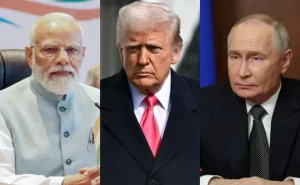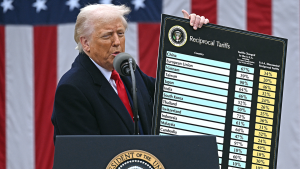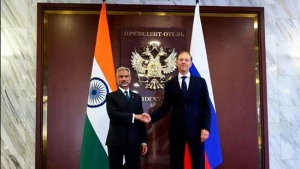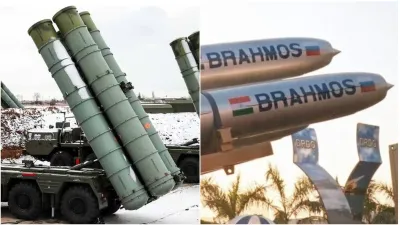Kremlin, Russia – Russia On Oil Trade With India continues to demonstrate resilience despite mounting pressure from US tariffs and European Union sanctions, with senior Russian officials expressing confidence about maintaining energy cooperation through “very special mechanisms.” Russian authorities dismissed concerns about punitive measures imposed by the Donald Trump administration, emphasizing their commitment to sustaining crucial oil supplies to their second-largest energy customer.
The position of Russia On Oil Trade With India reflects Moscow’s determination to preserve strategic partnerships despite Western attempts to curtail energy trade through economic sanctions and tariffs. Russian officials revealed sophisticated circumvention strategies designed to protect bilateral energy cooperation from external political pressures.
Strategic Energy Partnership Maintains Momentum

Russia On Oil Trade With India has become increasingly significant since Western sanctions were imposed following Russia’s 2022 invasion of Ukraine. India currently stands as Russia’s second-largest oil buyer after China, with Moscow accounting for approximately 40% of India’s total energy supplies, demonstrating the critical importance of this energy relationship.
The scale of Russia On Oil Trade With India was dramatically expanded after Western nations imposed comprehensive sanctions on Russian energy exports. This partnership has proven mutually beneficial, providing Russia with a reliable customer while offering India access to competitively priced energy supplies during a period of global energy market volatility.
Circumventing US Tariffs and EU Sanctions


Russian officials expressed confidence about Russia On Oil Trade With India continuing despite upcoming 25% US punitive tariffs on Indian exports scheduled for August 28, which will be imposed in addition to existing reciprocal tariffs. Deputy trade commissioner Evgeny Griva emphasized that “there are some mechanisms to supply crude oil” while maintaining secrecy about specific circumvention strategies.
Chargé d’affaires Roman Babushkin reinforced optimism about Russia On Oil Trade With India, stating, “This is not the first time our trade and economic relations [have been] threatened by external factors. But each and every time, we have managed to succeed in finding ways to cooperate further based on our mutual national interests.”
Vadinar Refinery Operations Continue Unaffected
Russia On Oil Trade With India has demonstrated practical resilience through continued operations at the Vadinar refinery in Gujarat, jointly owned by Russian energy giant Rosneft and an investment consortium. Despite being targeted by EU sanctions in July, the facility has maintained normal operations, with Russian officials confirming no impact on oil supplies.
The Vadinar facility, where Rosneft holds a 49.13% stake, represents India’s second-largest single-site refinery with annual capacity of 20 million metric tonnes. The continued success of Russia On Oil Trade With India at this facility demonstrates Moscow’s ability to maintain energy cooperation despite sanctions pressure.
Specialized Mechanisms for Sanctions Evasion
Russian officials revealed that Russia On Oil Trade With India benefits from sophisticated mechanisms addressing shipping and insurance-related challenges created by EU sanctions. Griva explained that crude oil is supplied directly to the refinery as a Rosneft subsidiary, enabling circumvention of traditional supply chain restrictions.
“The recent package of sanctions against Russia from the EU would not have much impact on Russian oil trade because we have been able to significantly reduce our dependence on services the EU provides in recent years,” Babushkin stated, highlighting the adaptive strategies supporting Russia On Oil Trade With India.
Price Stability Despite Western Pressure
While acknowledging potential challenges, Russian officials maintained optimism about Russia On Oil Trade With India price stability. They acknowledged that a 5% swing in oil import prices is possible amid Western tariffs and sanctions, though this remains subject to bilateral negotiation between the two countries.
The resilience of Russia On Oil Trade With India contributes to the broader target of achieving $100 billion in bilateral trade by 2030, supported by stable annual growth of approximately 10%. This demonstrates the strategic importance both nations place on maintaining economic cooperation.
Record Bilateral Trade Achievement

Russia On Oil Trade With India forms the cornerstone of record bilateral trade reaching $68.7 billion in 2024-25, though officials acknowledged the need to address trade imbalance issues. While India’s exports totaled only $4.88 billion, creating a $60 billion trade deficit, Russian officials committed to reducing this imbalance through enhanced cooperation.
Babushkin emphasized plans to “remove barriers to trade, facilitate interaction within business circles and give a new push to alternative logistics corridors” while developing payment and transaction mechanisms supporting Russia On Oil Trade With India.
Defence Cooperation Reinforces Energy Partnership


Beyond energy cooperation, Russia On Oil Trade With India is complemented by robust defence partnerships that have proven successful in recent conflicts. Russian officials highlighted that Operation Sindoor served as a “very successful battle test” for Russian weaponry, including the S-400 air defence system and BrahMos supersonic cruise missile.
Also Read: Trump Zelensky Meeting Signals Chance to End Big Russia-Ukraine War
The success of Russia On Oil Trade With India parallels continued defence cooperation, with Russia expecting participation in India’s planned Sudarshan Chakra long-range air defence shield, scheduled for operational deployment by 2035.
High-Level Diplomatic Engagement
Russia On Oil Trade With India receives strong political support through ongoing high-level diplomatic engagement. External Affairs Minister S. Jaishankar’s Moscow visit for IRIGC-TEC meetings with Deputy Prime Minister Denis Manturov demonstrates continued commitment to bilateral cooperation despite Western pressure.
Russian officials confirmed President Putin’s planned visit to India later this year for an annual summit with Prime Minister Modi, with comprehensive agenda including trade, investments, energy cooperation, infrastructure, and nuclear power projects supporting Russia On Oil Trade With India.
Future Resilience and Strategic Outlook
The confident assessment of Russia On Oil Trade With India by Russian officials reflects Moscow’s strategic commitment to maintaining energy partnerships despite Western sanctions and tariffs. Their emphasis on “very special mechanisms” and proven ability to circumvent previous sanctions suggests continued resilience.
As Russia On Oil Trade With India faces evolving challenges from Western pressure, the partnership’s adaptability and strategic importance to both nations indicate likely continuation despite external political pressures. The combination of energy cooperation, defence partnerships, and high-level political support provides a robust foundation for sustained bilateral engagement in the energy sector.

